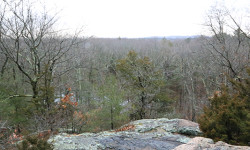Three fifth grade students from Katherine Lee Bates Elementary school recently wrote a letter to the Wellesley NRC about the use of pesticides and fertilizers. The students have been learning about the negative impact of pesticide and fertilizer use on the environment and the living things in the environment, including humans.
Jack Burkhead, Natalia Medina, and Kavin Shah learned how chemical pesticides and fertilizers applied to private landscapes can infiltrate the town water supply when rain or other precipitation runs off the land and washes the chemicals into the surrounding rivers and streams. The students were particularly interested in saving the Boulder Brook reservation, as this land abuts their school property.
The students sent out a heartfelt plea to neighbors of Boulder Brook to stop using chemical pesticides and fertilizers and to switch to organic fertilizer and organic alternatives to pesticides. It is the hope of these environmentally conscious youth that private residents follow the lead of the Wellesley DPW and go chemical pesticide and fertilizer free. All town of Wellesley-managed properties are currently maintained organically and without the use of harmful chemical pesticides and fertilizers. This practice makes it safe for children, pets, and native wildlife to run, play and live in a safe environment free of harmful chemicals.
While it is the hope of these young town residents that all town residents voluntarily comply with the request to be chemical pesticide and fertilizer free, these intelligent and environmentally-focused youth have also encouraged the town to create a town law that might be established to ban the use of chemical pesticides and fertilizers on all town land.
The efforts of these three students align with the NRC’s mission and support of House Bill 776. House Bill 776 supports establishing minimum standards and restrictions relative to the use, application, and disposal of pesticides and allows individual cities and towns to adopt ordinances and by-laws that regulate, restrict or prohibit the use and application of or disposal of pesticides within the city or town that are more stringent than the standards and restrictions established by federal regulations
Representative Dylan Fernandes’ legal aide, has invited the students to testify, along with the NRC, once the pre-emption bill comes up. The actions of these young residents should serve as a model for all town residents seeking changes to the laws which will give individual towns the ability to protect the land and all that lives and grows with in it from the harmful effects of chemical pesticides and fertilizers.
























